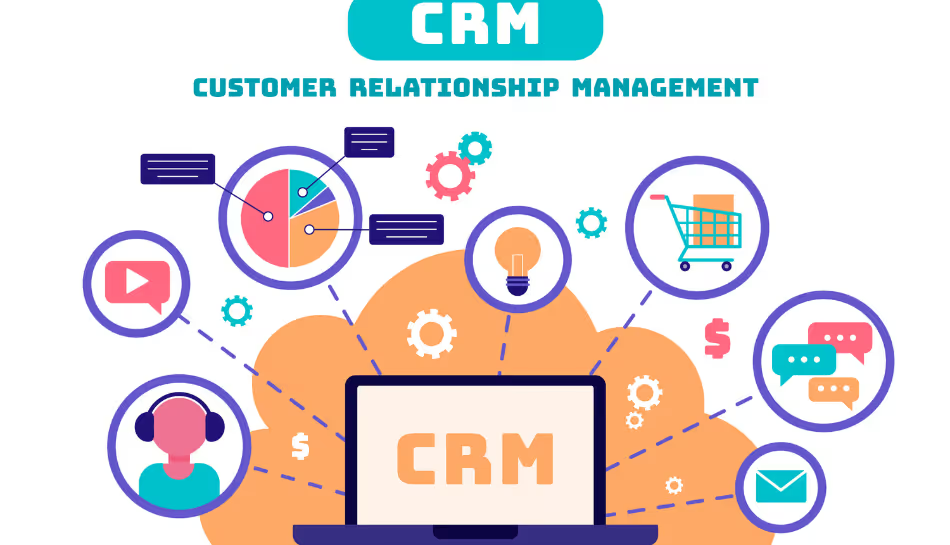In today’s competitive industrial landscape, manufacturing companies face challenges such as fluctuating demand, increasing costs, complex supply chains, and the need for faster production cycles. The right manufacturing ERP system can help address these issues by streamlining operations, improving visibility, and enhancing decision-making. However, successful implementation is key to realising these benefits.
Why ERP Matters in Manufacturing
An ERP for manufacturing industry integrates core business processes such as production, inventory, procurement, quality control, sales, and finance into a single platform. This enables manufacturers to operate more efficiently while maintaining accuracy in data and processes.
The best manufacturing ERP software provides real-time visibility across departments, ensuring that production schedules align with inventory levels, customer orders, and supplier timelines.
Key Stages of ERP Software Implementation in Manufacturing
Implementing production ERP software requires careful planning and execution. Here are the essential steps:
- Needs Assessment
The first step is to identify what the ERP software for manufacturing industry should achieve. Common goals include improving production planning, reducing downtime, automating quality checks, and optimising resource allocation. - Vendor Selection
Choosing the best ERP for manufacturing industry involves comparing features, scalability, ease of use, and cost. Businesses in India often look for manufacturing ERP in India solutions that comply with local tax regulations, GST requirements, and industry-specific needs. - Process Mapping
Before ERP installation, companies must map existing workflows and identify inefficiencies. This ensures the ERP system mirrors actual operations while improving them where necessary. - Customisation and Configuration
Every ERP for manufacturing company has unique requirements. Customising modules such as production scheduling, shop floor control, and inventory management ensures the ERP meets those needs without unnecessary complexity. - Data Migration
Data from legacy systems, spreadsheets, or standalone software must be cleaned and transferred into the new industrial ERP system. Accuracy at this stage is vital to avoid operational disruptions after launch. - Training and Change Management
Even the best ERP for manufacturing will fail without proper user adoption. Training employees and addressing resistance to change is essential for smooth transition. - Testing and Go-Live
Before full-scale implementation, running a pilot phase allows teams to detect errors, make adjustments, and ensure the ERP functions as intended. Once stable, the system can be rolled out company-wide. - Post-Implementation Support
Ongoing technical support, updates, and performance monitoring keep the ERP running efficiently and aligned with evolving business needs.
Benefits of Manufacturing ERP Implementation
When implemented correctly, manufacturing ERP software delivers measurable improvements:
- Better Production Planning – Aligns manufacturing schedules with demand forecasts.
- Inventory Optimisation – Prevents overstocking and stockouts through real-time tracking.
- Improved Quality Control – Integrates quality checks at multiple stages of production.
- Cost Reduction – Minimises waste, downtime, and process inefficiencies.
- Regulatory Compliance – Ensures adherence to tax laws, safety regulations, and industry standards.
Manufacturing ERP in India: A Growing Trend
For companies operating in India, ERP for manufacturing in India must handle GST compliance, multi-location operations, and integration with local suppliers. Cloud-based ERP systems are becoming popular among Indian manufacturers due to lower upfront costs, scalability, and remote accessibility.
Many ERP for manufacturing companies in India also integrate IoT (Internet of Things) features, enabling machine-level data collection for predictive maintenance and performance analytics.
Choosing the Right ERP for Your Manufacturing Company
Selecting the right ERP is about balancing functionality, cost, and scalability. Look for:
- Industry-specific modules tailored for manufacturing.
- Real-time reporting and analytics.
- Integration capabilities with existing systems.
- Strong after-sales support from the vendor.
- Flexible deployment options, cloud or on-premises.
Final Thoughts
ERP implementation in manufacturing is more than a technology upgrade, it’s a transformation in how a company operates. From production ERP software to advanced analytics, the right solution can boost efficiency, reduce costs, and give manufacturers a competitive edge.
Whether you’re seeking the best ERP for manufacturing industry globally or a tailored manufacturing ERP in India, careful planning, proper training, and a clear implementation roadmap are the keys to success. With the right approach, ERP becomes an asset that drives innovation, customer satisfaction, and long-term profitability.



